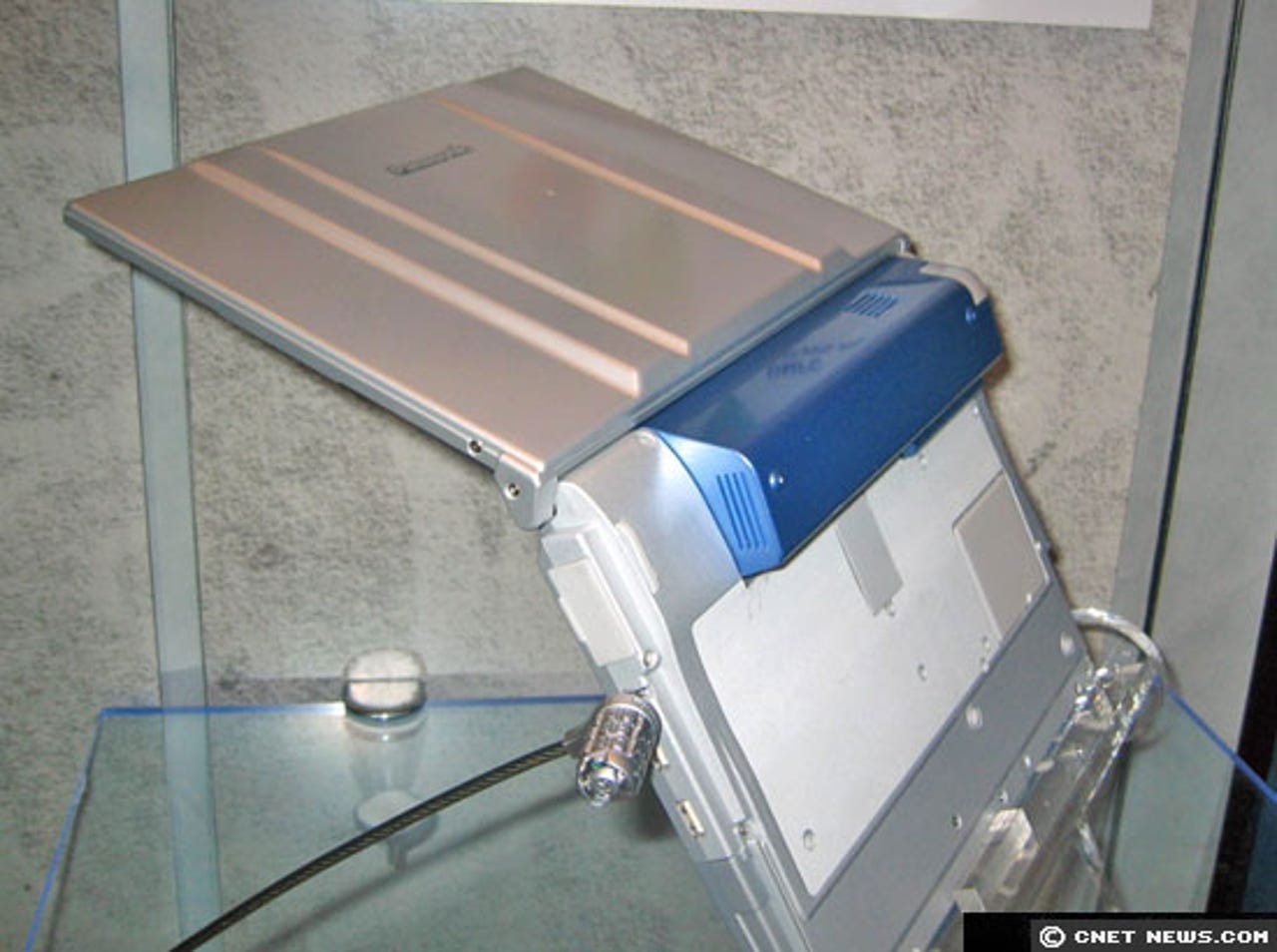Photos: Gaggles of gadgets at CES


Panasonic fuel cell
Panasonic's prototype fuel cell can run a notebook for up to 20 hours. If the notebook operates at 13 watts or less, which is about average, the fuel cell powers the notebook. If draws more power than that, a battery helps run it. Panasonic says it has no plans to commercialize this fuel cell device just yet--it wants to shrink its case to fit flush with the notebook case. A version of the fuel cell might hit the market in 2007 or so.
Philips phone
A prototype of a phone from Philips Semiconductor that switches automatically from cellular to Wi-Fi. Phones containing the chips will come out later this year, and with them, consumers can possibly cut their bills, said Philips Semi CEO Frans Van Houten.
Panasonic HD video camera
Panasonic's "prosumer" high-definition video camera. It costs $5,999, but cheaper models are on the way.
Pan 103-inch plasma
Panasonic's 103-inch plasma TV, among the biggest plasma TVs ever built.
mouse/remote from Thomson
This is a combo mouse/remote from Thomson. You can use it like a remote and click from one icon to another, or scroll about a big screen as you would with any mouse.
Samsung 4-inch TV
The DMB T450 from Samsung, a TV with a 4-inch screen.
Samsung TV camera
From Samsung, the SDC-K50, a combination TV and digital camera. It is one of the first of its kind.
Panasonic flash camcorder
Paul Liao, chief technology officer of Panasonic North America, shows off the company's flash-memory camcorder. The 2MB of flash built into the camera can take about 40 minutes of video. Price is about $1,199. The Japanese giant, a minor player in cameras in North America now, will make a big push in the U.S. this year. A big selling point, says Liao, will be the camera's image stabilization, designed to greatly reduce image jitter. The camera weighs about 7 ounces.
Samsung TV camera, #2
Samsung's SDC-K50 TV/digital camera.
Sharp TV pyramid
Sharp built this pyramid of flat-screen Aquos TVs and rewarded for the effort. It was one of the hits of the show.
TV pyramid
Sharp's Aquos TV pyramid.
Sanyo DVD player/nav. computer
A combination DVD player and navigation computer for cars from Sanyo. News.com last year saw these in Japan but they are now coming to the United States.
MicroVault from Sony
MicroVault Tiny storage products from Sony hold from 256MB to 4GB of data and come in fruit-inspired colors.
Sony electronic book
Sony's electronic book, called the Librie, has been released in Japan but is scheduled to come to the U.S. soon.